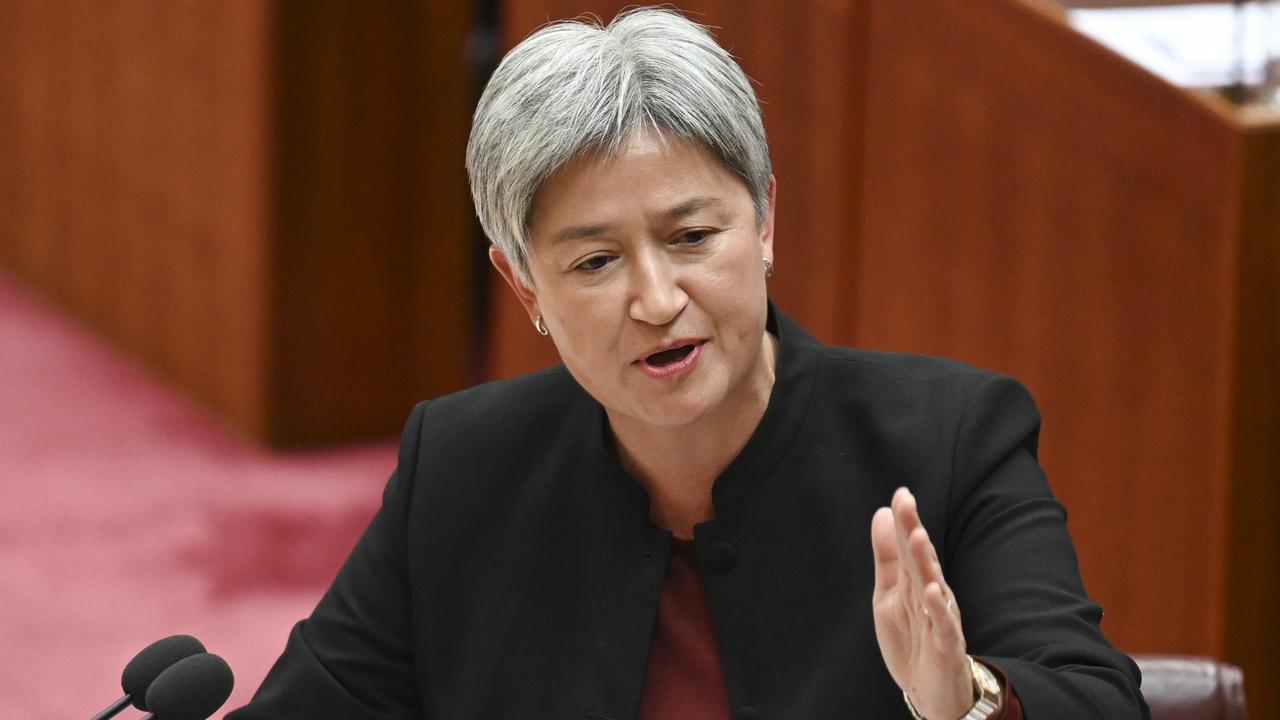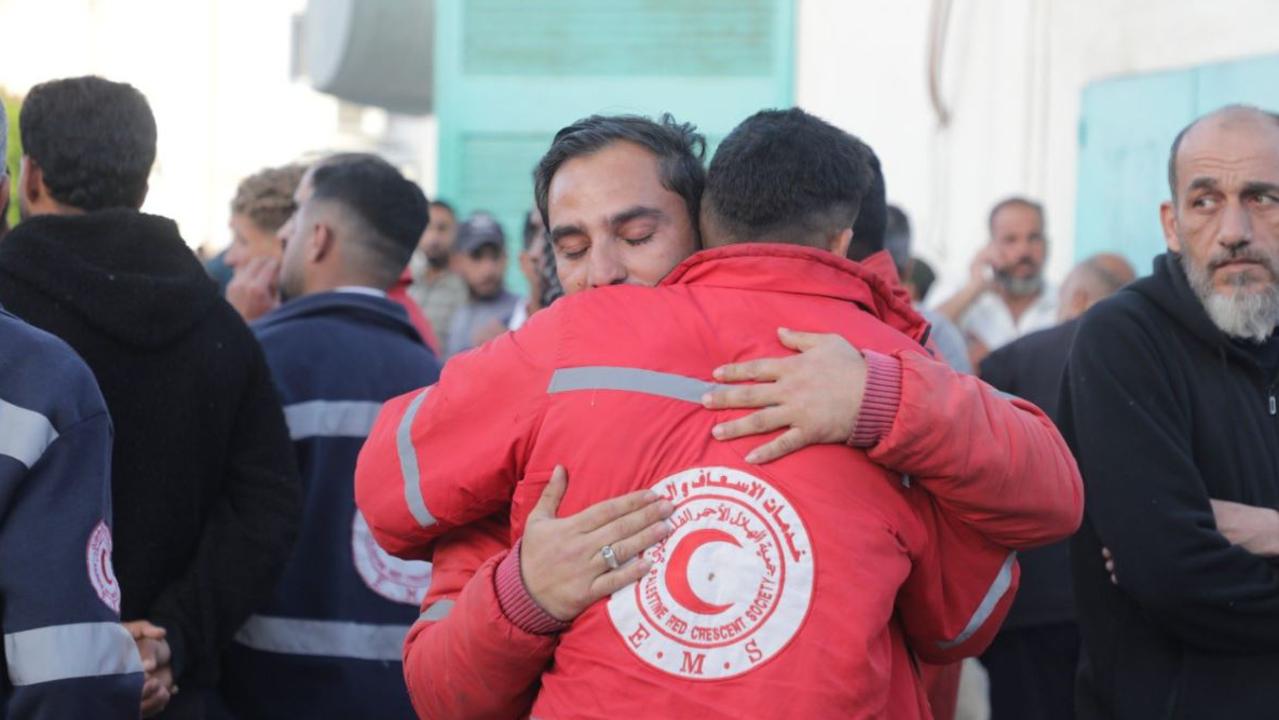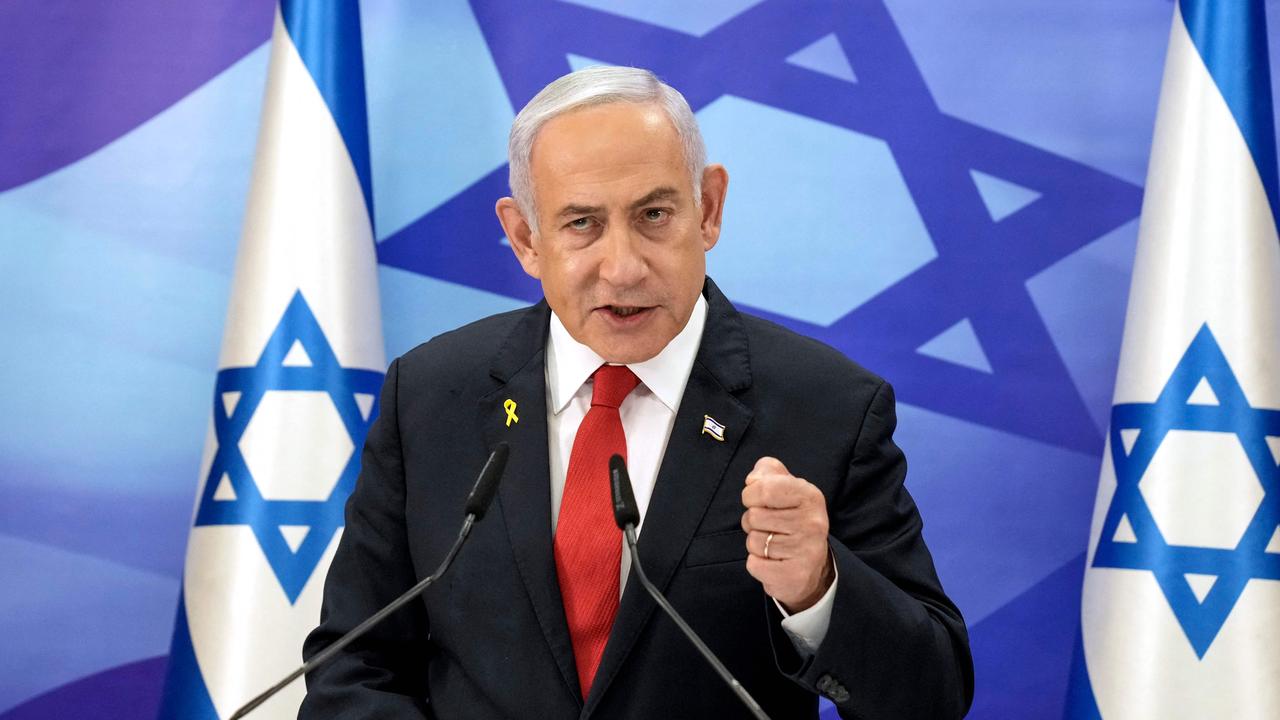Terrifying ‘barcode leaflets’ dropped by Israel
Israel has begun dropping leaflets into parts of Lebanon with a “very dangerous” barcode on them, according to Hezbollah’s media office.
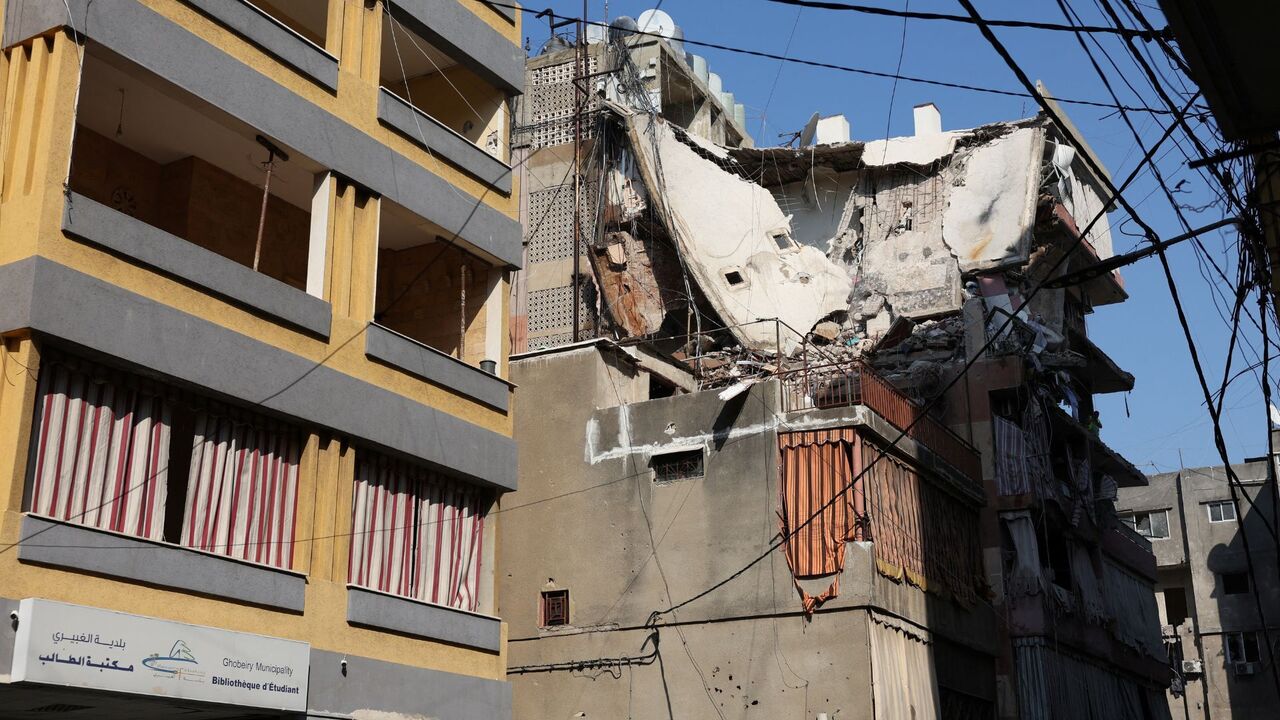
Israel has begun dropping leaflets into parts of Lebanon with a “very dangerous” barcode on them, according to Hezbollah’s media office.
The ominous barcode allegedly “withdraws all information” from phones if scanned.
Israeli government spokesperson David Mencer was asked directly about the airdropped leaflets on Tuesday, but dodged the question completely.
“The prime minister has also made clear... that whoever tries to harm this country, we will harm them all the more forcefully,” Mr Mencer responded.
“Israel’s patience is not inexhaustible. We will secure our northern border and our people will be allowed to get home.”
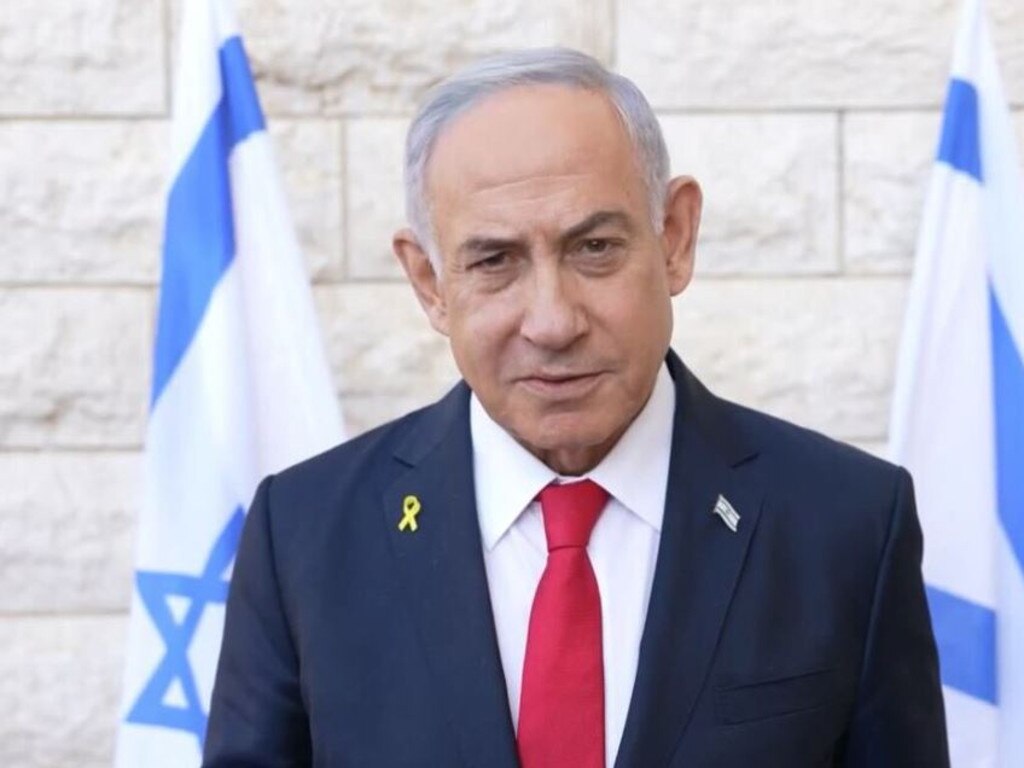
Earlier on Tuesday, Israel vowed to press on with its unrelenting aerial bombing campaign.
Anyone who has a missile in their living room and a rocket in their garage will not have a home,” Israeli Prime Minister Benjamin Netanyahu warned on Tuesday.
“Our war is not with you, our war is with Hezbollah,” he said to Lebanese citizens during a visit to an Israeli intelligence base.
He warned that Hassan Nasrallah, the leader of powerful Iran-backed militant group Hezbollah, was “leading you to the brink of the abyss”.
“Rid yourself from Nasrallah’s grip, for your own good.”
Israel has wiped out most of Hezbollah’s leadership in two days of brutal targeted airstrikes.
Over 550 people, including dozens of children, were killed in Israeli strikes on Lebanon on Monday, according to the country’s health ministry.
On Tuesday, leading commander Ibrahim Qubaisi in the terror group’s rocket division was killed in the suburbs of Beirut, Reuters reported.
Bombs have also targeted ammo stores, with clips of the strikes showing houses in residential areas being obliterated.
The Israeli Defence Force claims Hezbollah are hiding cruise missiles, rockets and unmanned aerial vehicles (UAVS), in civilian homes.
US officials told CNN that Hezbollah has been significantly weakened by the attacks which had taken them backwards by about 20 years.
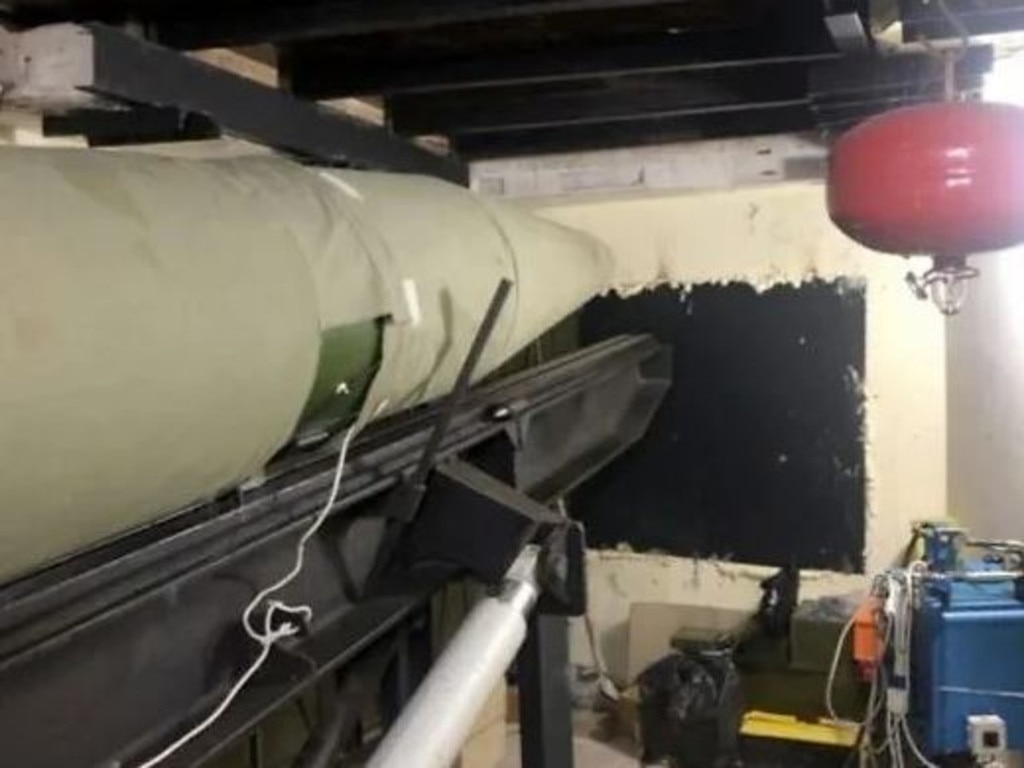
“Now is the time”: Biden’s final address
Meanwhile, US President Joe Biden used his likely final speech to the United Nations General Assembly to urge Israel and Hamas to finalise a months-old ceasefire proposal.
“Now is the time for the parties to finalise its terms,” he said of the deal brokered by the United States, Qatar and Egypt.
The deal will “bring the hostages home and secure security for Israel and Gaza free from Hamas’s grip, ease the suffering in Gaza and end this war,” Biden said.
“Almost a year later, too many on each side of the Israeli-Lebanon border remain displaced.
“Full-scale war is not in anyone’s interest. Even though the situation has escalated, a diplomatic solution is still possible.”
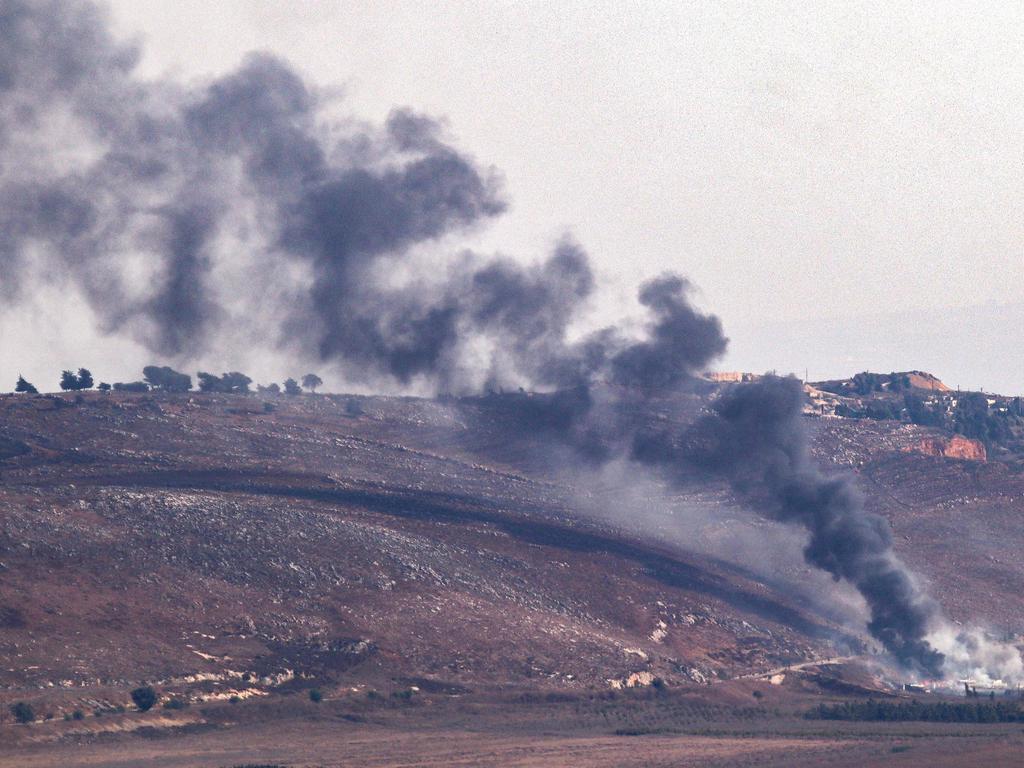
“Cannot stand alone”: Iran’s chilling threat
Iran’s President Masoud Pezeshkian said Tuesday that its ally Hezbollah “cannot stand alone” against Israel.
“Hezbollah cannot stand alone against a country that is being defended and supported and supplied by Western countries, by European countries and the United States,” Pezeshkian said in an interview with CNN translated from Farsi to English.
He called on the international community to “not allow Lebanon to become another Gaza,” in response to a question on whether Iran would use its influence with Hezbollah to urge restraint.
Pezeshkian, who has been in New York for the annual UN General Assembly, denounced the United Nations’ “inaction” against Israel on Tuesday.
“In my meeting with the Secretary General of the United Nations, I said the UN inaction against the crimes of the occupying regime is senseless and incomprehensible,” he said in a post on social media platform X.
“I expressed my deep concern about the spread of the conflict in the entire Middle East,” he added.
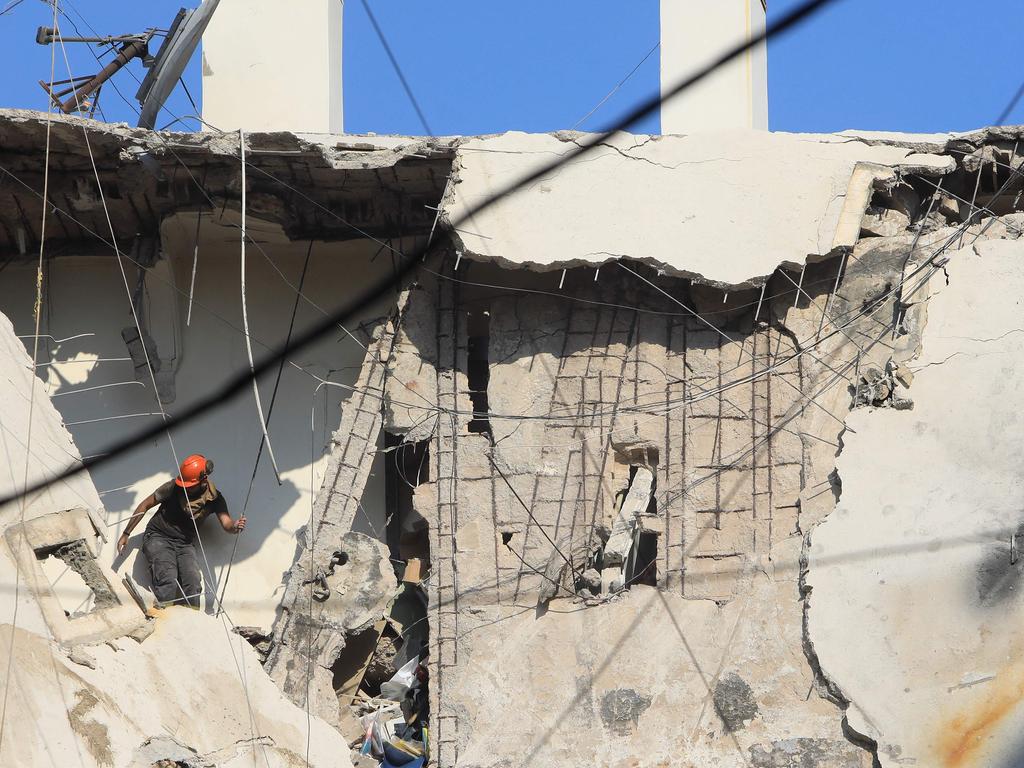
The Israeli strikes came less than a week after coordinated sabotage attacks targeting Hezbollah’s communication devices killed 39 people and wounded almost 3,000.
The Iranian president also accused Israel of warmongering, saying “it is Israel that seeks to create this wider conflict.”
“We know better than anyone that if a larger war erupts in the Middle East, it will benefit no one globally,” Pezeshkian told journalists at a roundtable.
He added that Iran had “never started a war in the last 100 years” and was “not looking to cause insecurity”.
But he insisted that Iran “will never allow a country to force us into something and threaten our security and territorial integrity.”

International airlines suspend flights
International airlines have in recent weeks suspended a growing numbers of flights to Lebanon.
United Arab Emirates-based Emirates announced the temporary suspension of its flights to Beirut on Tuesday and Wednesday.
Its sister airline flydubai also cancelled flights to Beirut on Tuesday and Wednesday.
“The safety of our crew and customers is of utmost importance and will not be compromised,” Emirates said in a statement.
Qatar Airways, which operates two flights a day to the Lebanese capital, also cancelled services for two days.
“Due to the ongoing situation in Lebanon, Qatar Airways has temporarily suspended flights to and from Beirut Rafic Hariri International Airport until September 25,” it said in a statement.
Air France on Tuesday extended the suspension of its Beirut flights until October 1, which a spokesman told AFP was due to the “security situation”.
Germany’s Lufthansa had already suspended Beirut flights until October 26. But on Tuesday it also extended the suspension of flights to and from Israel’s Tel Aviv and Iranian capital Tehran up to and including October 14 in response to the tensions.
- With AFP, The US Sun


